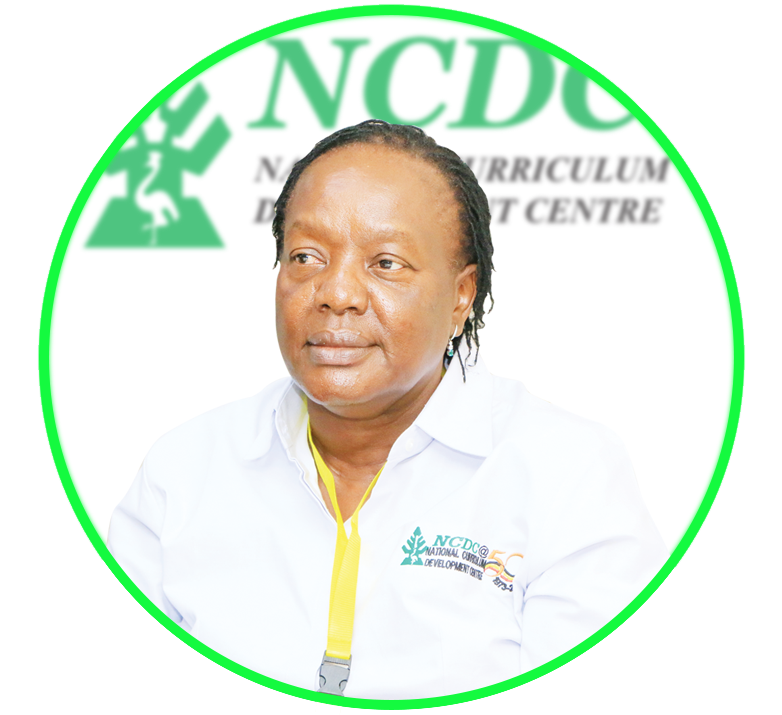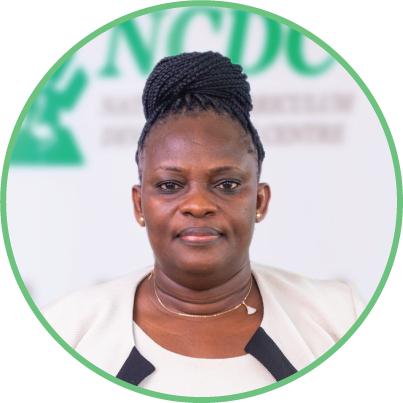NCDC Management is headed by the Director, who is assisted by Deputy Directors.
- DirectorDr. Grace K. Baguma
- Dr. Richard IrumbaDeputy Director Research, Consultancy
& Library Services - Dr. Bernadette N. KaruhangaDeputy Director Curriculum Review
& Instructional Materials Development
Functions
Plans, directs, oversees and coordinates the Human Resource and Administrative function at the Centre.
Coordinates the designing and implementation of effective regular reviews of Human Resource policies, procedures and programmes for harmonious working relationships.
Develops and coordinates employee induction and on the job- orientation courses aimed at providing employees with relevant information about their work and the Centre.
Conducts training needs assessments and prepares staff Training and Development programmes under the guidance of the Human Resource Manager.
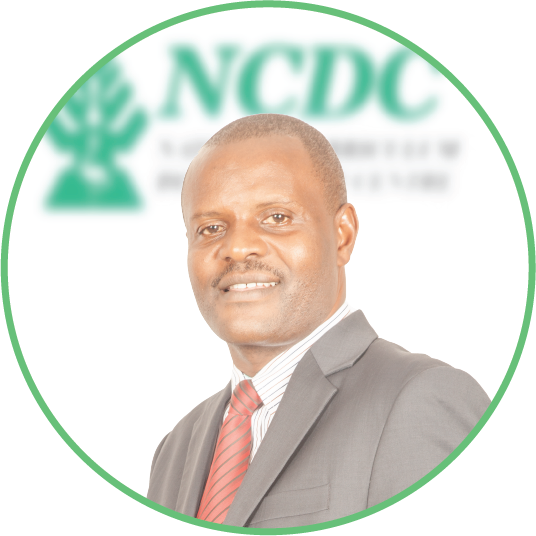
Manager HR and Admin
Functions of Finance Department
- Obtaining and handling any monies on behalf of the
NCDC. - The department controls the income and expenditure in
addition to ensuring effective business running with
minimum disruptions. - Handles the payroll, income and expenses.
- Conducts cost-benefit analysis to improve key business
strategies. - Keeps and manages all account records of NCDC.
- Reconciles NCDC’s financial registers to make suitable
business decisions. - Bookkeeping and income statement preparations.
- Manages statutory deductions from employees.
- Filing requisite financial data to the auditors and Ministry
of Finance. - Plans and implements the NCDC's financial year budget.
- conducts research and collects data to use in temporary and permanent financial forecasts.
- Plans for acquiring, updating and maintaining the latest
operations systems to improve efficiency.
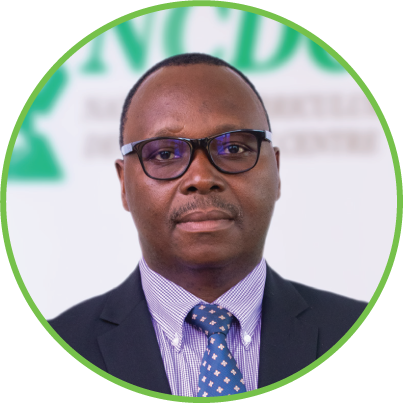
Manager, Finance
Functions of PDU
- Manage and coordinate all procurement and disposal activities of the Ministry.
- Act as a secretariat and support the functionality of the contracts committeee.
- Act as representative and liaison of the PPDA.
- Support the functioning and implement the decisions of the Procurement Authority.
- Prepare tendering documents and advertise the tender opportunities
- Providing technical guidance to the Missions on procurement and disposal matters
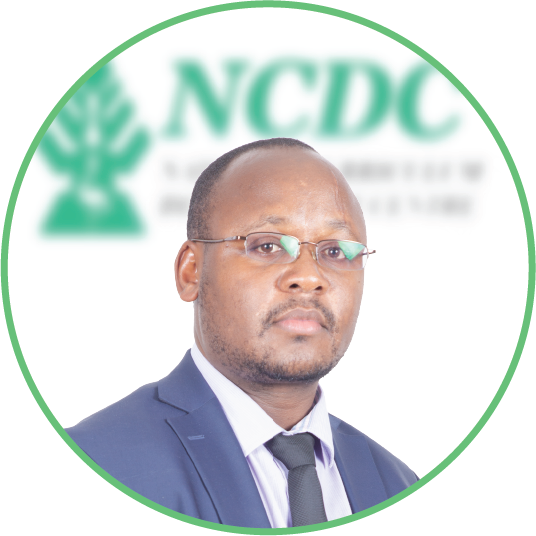
Head, Procurement & Disposal Unit
Functions of Internal Audit
- Verify the existence of assets and recommend proper safeguards for their protection;
- Evaluate the adequacy of the system of internal controls;
- Recommend improvements in controls;
- Assess compliance with policies and procedures and sound business practices;
- Assess compliance with laws and contractual obligations.
- Review operations/programs to ascertain whether results are consistent with established objectives and whether the operations/programs are being carried out as planned;
- Investigate reported occurrences mismanagement of resources.
- Act as consultancy Unit of the Centre, etc.
Reporting structure of the Internal Audit function
The Internal Audit function has two reporting lines: to the Governing Council through the Audit and Risk Assurance Committee; administratively and to the Director/Accounting Officer.
However, in accordance with the Public Finance Management Act (PFMA), 2015 (as amended), Internal Audit functionally also reports to the Sector Audit Committee and the Internal Auditor General (IAG).
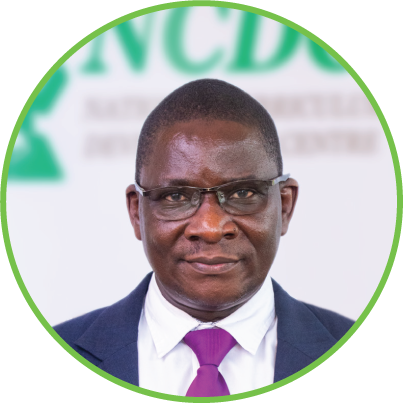
Chief Internal Auditor
Purpose
To design and guide institutional strategic and capital investment planning; budget and mobilise resources for the implementation of interventions; as well as monitor, evaluate and advice on the achievement of results.
Main Duties and Responsibilities
- Oversee development/review and effective implementation of the strategic plan, functions and mandate of the Centre.
- Spearhead the implementation of the institutional M&E Framework and Plans, monitoring exercises and methodologies of baseline, mid-term, end-term and ex-post evaluations, coordinate reporting and dissemination.
- Secretariat to the Centre’s Budget Committee and advise management on matters of planning, budgeting, capital investments, M&E and compliance to national economic development guidelines
- Oversee the design and implementation of capital investment projects.
- Spearhead and coordinate institutional resource mobilisation initiatives.
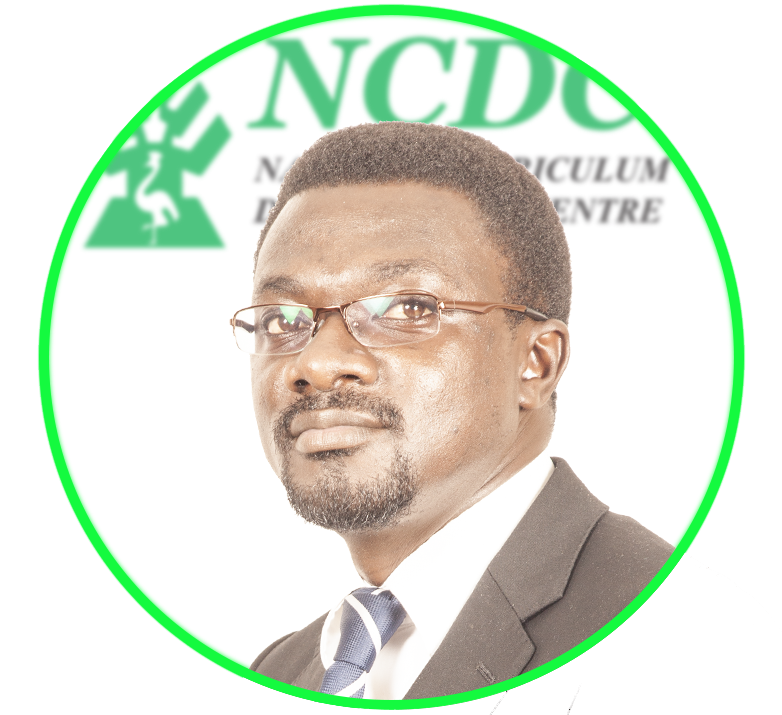
Head, Planning Unit (Senior Economist)
Early Childhood Care & Education
Early childhood care and education describes the period of learning that takes place from birth to 8 years old. Early Childhood Education is a term that refers to educational programs and strategies geared toward children from birth to the age of eight. Early childhood education often focuses on guiding children to learn through play.
The Aims and Objectives of Early Childhood Care and Education
According to the “Education for National Integration and Development”, (Government White Paper on The Education Policy Review Commission Report – 1992), the aims and Objectives of pre-primary education are under listed:
- To develop capabilities and healthy physical growth of the child through play/ activities.
- To help the child develop good social habits as an individual and as a member of society.
- To develop moral values in the child.
- To receive work from the academic departments and evaluate make recommendations on how to improve it.
- To enrich the child’s experience by developing imagination, self-reliance and thinking power.
- To help the child towards appreciating his/her national cultural background and customs, and developing a feeling of love and care for other people and for Uganda and a sense of unity leading to a national stance.
- To develop language and communication skills in the mother tongue.

Manager, Early Childhood Care and Education
Primary Department
The primary school curriculum in Uganda is designed to align with national aims and objectives of education. These include fostering literacy, numeracy, and communication skills, promoting physical and mental health, instilling cooperative values, nurturing cultural and moral understanding, encouraging environmental stewardship, cultivating patriotism and civic engagement, preparing for further education and practical skills, fostering dignity of work, problem-solving abilities, discipline, and good manners.
The curriculum is structured into three phases:
- Phase 1 (Primary One – Three): Focuses on basic skills using a thematic approach, emphasizing literacy, numeracy, life skills, and values, with themes selected to reflect learners’ interests and everyday activities.
- Phase 2 (Primary Four): Transition year from theme-based to subject-based curriculum, with emphasis on English language development as the medium of instruction.
- Phase 3 (Primary Five – Seven): Subject-based curriculum covering English, Mathematics, Social Studies, Integrated Science, Local Language, Creative Arts, Physical Education, and Religious Education (Christian and Islamic).
The curriculum aims to equip students with foundational knowledge, skills, and attitudes necessary for secondary education, the workforce, scientific and technical applications, and life skills. It emphasizes language competency, critical thinking, and cultural appreciation, while gradually transitioning students to English as the primary medium of instruction.
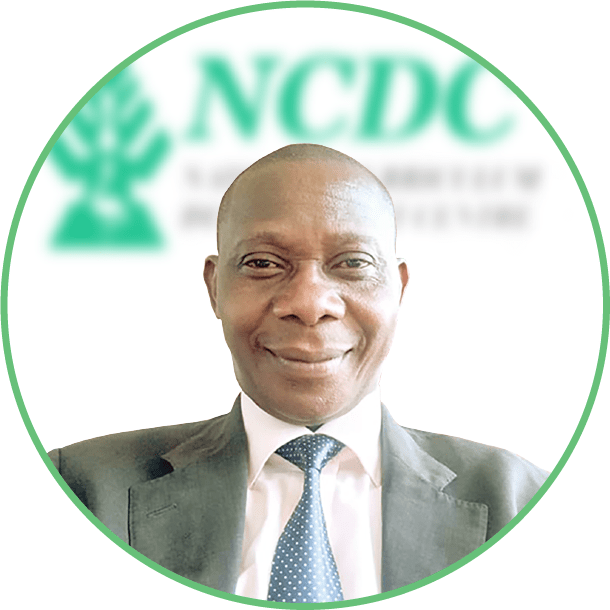
Manager Primary Department
Secondary Department
The Secondary department is responsible for, among others, designing and developing curricula and curriculum materials for secondary education.
Secondary education is divided into two cycles: The Lower Secondary Education cycle referred to as Ordinary level that leads to the award of the Uganda Certificate of Education (UCE). This cycle lasts a period of four academic years. The Higher Secondary Education cycle referred to as Advanced Secondary level of education that leads to the award of the Uganda Advanced Certificate of Education (UACE).
The main activities of the secondary department this financial year were to; re-organise the lower secondary curriculum via Subject Approach. After stakeholder consultations with the Vice Chancellors of both Public and Private Universities, Principals of NTCs and Deans of faculties of Education and Sciences, a reduced curriculum menu of 20 subjects was agreed. The curriculum was approved by His Excellency, the President at the April 5th 2018 meeting with the Stakeholder in his office. Fine-tuning of the syllabuses is being finalised and arrangements for preliminary activities for roll out in 2020 are in high gear.

Manager secondary Department
Special Needs Education (SNE)
About us
Special needs department aims at providing cross-cutting or Inclusive education issues done at the centre. Special needs education aims to provide accommodated education for learners with disabilities and special educational needs
Vision
Learners and teachers with special educational needs accessing quality educational learning/instructional materials.
Mission
To coordinate and support the provision of quality and relevant educational materials to all Ugandans.
General Activities of the Department.
- Overseeing and coordinates all activities concerning special needs and inclusiveness at the centre.
- Oversees the development and implementation of special needs and inclusive policies, procedures and plans for proper management of the centres special needs and inclusive resources.
- To advocate for inclusive education (IE) through embracing modification/adaptations in curricular, teaching methods, teaching/learning resources and learning environments.
- Advocates for change of behavior, attitudes, teaching methods, curriculum, environments to address issues of quality and equity
- Advocates for allocation of human resource, material and financial resources to meet the educational needs of all learners.
- Envisages the application of technology in teaching and learning of learners with special educational needs to address of issues of quality and equity.
Generic services provided
- Adaptation/modification of the existing curriculum materials to suit the needs of different learners with special education.
- Curriculum material development that supports learners with special educational needs.
- Orientation of teachers and other key stakeholders on the developed materials.
- Training of teachers on the development of teaching and learning materials using the locally available resources.
- Carrying out advocacy.
- Carrying out sensitization on issues of special education.
- Counselling and guidance to teachers, learners and other key stakeholders.
- Carrying out home-based programs in homes with learners with different barriers to learning and development.
- Carrying out assessment in different areas of special needs.
- Making referrals to relevant institutions that can provide necessary assistance.
- Assisting the concerned individuals in proper placement of their children.
Additional information
Examples of learners with special educational needs are
- Those with learning disabilities such as; dyslexia – having difficulties in reading and writing.
- Those with communication disorders.
- Emotional and behavioral disorders (such as; attention deficit hyperactive disorder ADHD).
- Physical disabilities (such as; cerebral palsy, muscular dystrophy, spinal bifida).
- Development disabilities (such as; autistic spectrum disorder and intellectual disabilities).
- Sensory disabilities (such as; visual impairment and hearing impairment).
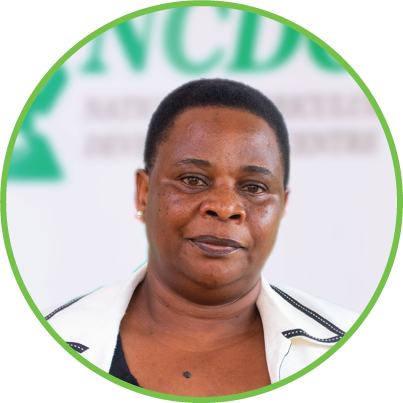
Manager Special Needs Education
LifeLong Skills and Co-curricular activities
LLSC department is mandated to develop curricula for tertiary institutions for Certificate and Diploma programmes run by both public and private institutions. The department is developing and reviewing curricula to make them competence based with a modular approach for skills development. The new curricula will produce learners who are analytical, creative, and innovative.
THE CURRICULA SO FAR DEVELOPED ARE:
Technical and Vocational
HIGHER NATIONAL DIPLOMA PROGRAMMES IN:
- Mechanical engineering
- Civil Engineering
- Electrical Engineering
NATIONAL DIPLOMA PROGRAMMES IN;
- Mechanical engineering
- Civil Engineering
- Electrical Engineering
- Refrigeration and Air Conditioning
- Ceramics
- Water Engineering
- Information and Communication Technology
- Architecture
- Leather Technology
- Accountancy
- Marketing
- Business Management
- Public Administration and Management
- Procurement and Supplies Management
- Customs Clearing and forwarding
- Human Resource Management
- Journalism and Media Studies
- Hotel and institutional Catering
- Cosmetology
- Records and Information Management
- Secretarial and Office Administration
- Fashion and Garment Design
NATIONAL CERTIFICATE COURSES:
- Machining and Fitting
- Welding and Fabrication
- Building Construction
- Woodwork Technology
- Plumbing
- Painting and Decoration
- Electrical Installation Systems and Maintenance
- Electronics
- Computer Repair and Maintenance
- Performing Arts
- Refrigeration and Air Conditioning
- Agricultural Production
- Ceramics
- Water Engineering
- Information and Communication Technology
- Architecture
- Leather Technology
- Accountancy
- Marketing
- Business Administration
- Public Administration and Management
- Procurement and Supplies Management
- Clearing and Forwarding
- Human Resource Management
- Journalism and Mass Communication
- Hotel and Institutional Catering
- Cosmetology and Body Therapy
- Records and Information Management
- Secretarial and Information Management
- Fashion and Garment Design
- Guidance and Counseling
- Social Work
- Tourism and Hospitality
- Those with learning disabilities such as; dyslexia – having difficulties in reading and writing.
- Those with communication disorders.
- Emotional and behavioral disorders (such as; attention deficit hyperactive disorder ADHD).
- Physical disabilities (such as; cerebral palsy, muscular dystrophy, spinal bifida).
- Development disabilities (such as; autistic spectrum disorder and intellectual disabilities).
- Sensory disabilities (such as; visual impairment and hearing impairment).
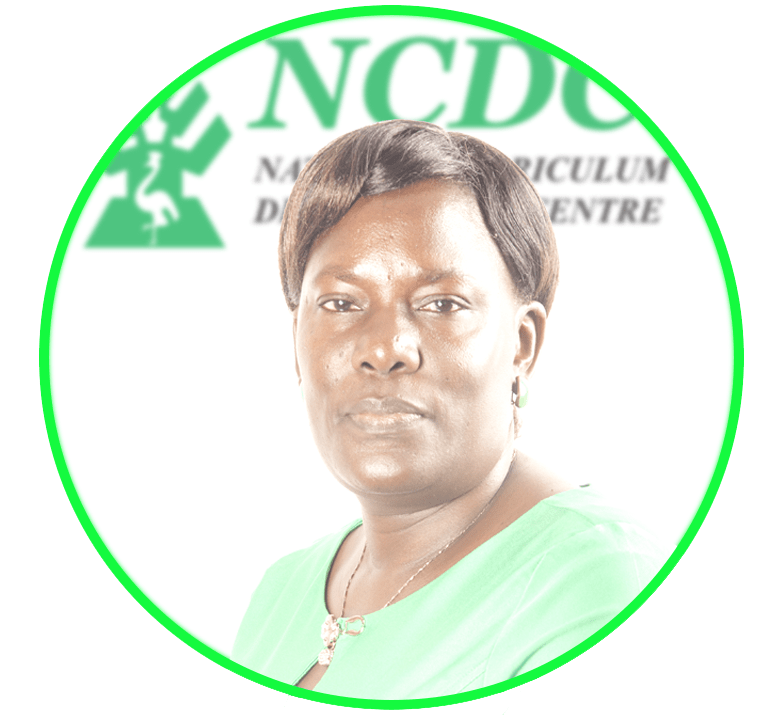
Manager BTVET/LifeLong Skills Department
Pedagogy & Innovations
Who are we?
Pedagogy and Innovation is a Service Unit that supports the mandate of NCDC by Working hand in hand with existing departments: Early Childhood Development (ECD), Primary, Secondary, Life-long learning skills and Special Needs in ensuring a comprehensive teaching and learning process across all levels.
What do we do?
- Initiate Pedagogical Solutions in the Curriculum across levels.
- Support existing departments in incorporating pedagogical solutions in the developed.
- Syllabi, books, teaching and learning guides.
- Develop Bulletins, Manuals with methods that equip learners with the 21 st Century Skills.
- Support the existing departments in training teachers to interpret the methodologies in the curriculum and other support materials.
- Partner with other institutions and organizations in fostering the teaching and learning process through innovative methodologies and materials.
What are our Activities?
- Research relevant pedagogies.
- Integrating relevant Pedagogical Theories into the Curriculum.
- Develop Bulletins, Manuals, Guides and Resource Books.
- Organize workshops on Pedagogy (Andragogy) and Innovation.
- Training Subject specialists in Pedagogies of the 21st Century.
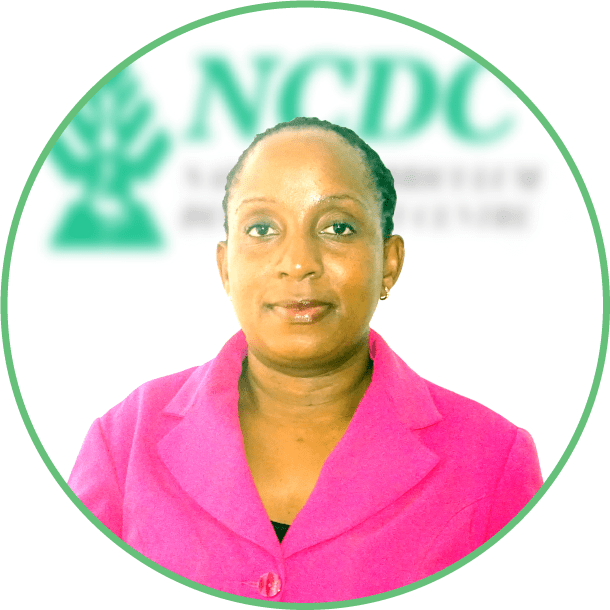
Manager Pedagogy & Innovations
Quality Assurance & Publishing
What we do?
- Building of staff capacity in the area of quality management.
- Coordinating the setting of standards during curriculum development processes.
- Evaluating materials from academic departments and writing recommendations on improvement.
- Evaluating academic materials from the public and writing recommendations on their suitability for use in Uganda’s educational institutions.
- Evaluating for certification other curriculum materials for use in Uganda’s educational institutions.
- Editing, proof reading and styling materials from academic departments and the public.
Parameters for Evaluating Materials
- Conformity to the Syllabus.
- Content/Subject matter.
- Relevance of the subject
- Accuracy of facts & concepts
- Appropriateness to the target users
- Logical Presentation
- Promotion of Ugandan local issues
- Originality.
- Appropriateness of language to the target users.
- Relevance of the tasks/activities in view of the target users.
- Quality and relevance of illustrations or pictures.
- Sensitivity.
- Persons and events portrayed.
- Gender
- Objectivity
- National groups
- Layout and design.
- Binding
- Quality of paper used
- Font type according to the target users
- Colour used according to the target users
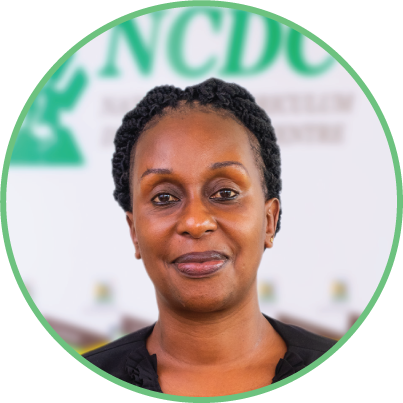
Manager Quality Assurance and Publishing
Research, Evaluation & Consultancy
NCDC has a vibrant research and evaluation department whose strategic objective is to provide relevant and up-to-date information for curriculum Development. The department has continued to inform and guide the curriculum development process in this country. The Research and Evaluation department at NCDC is a cross cutting department that supports other academic departments in research and evaluation related activities. It consists of two units. The Research and evaluation and the library unit.
The responsibilities of the Research and Evaluation department include; conducting research and evaluation studies in curricula and educational programs; Evaluate the effectiveness of instructional materials and methods in educational institutions; training panel members in research methods and techniques; producing research reports for curriculum planning and management; disseminating information and findings to promote understanding and better practices of curriculum implementation; maintaining an efficient document unit and providing relevant and up-to-date information resources for curriculum development.
The department of recent has engaged in a number of activities including; dissemination of the findings on the Effectiveness of the Uganda Primary Four Curriculum in the four regions in Uganda; A study on assessing the implementation of the Subsidiary Mathematics and Subsidiary Information Technology Curricula at Advanced level.
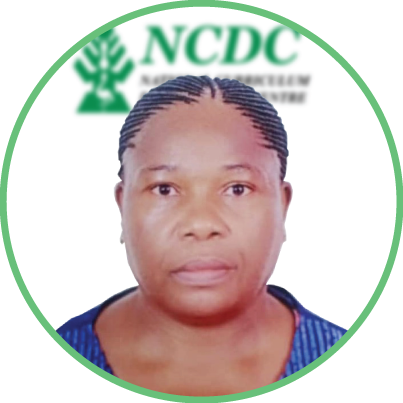
Manager, Research and Consultancy
Library & Documentation Services
Library Services
The Documentation and Library Services is a department under the Directorate of Research Consultancy and Library Services with its function of providing relevant and up-to-date information for Curriculum development. It consists of the main library (reading space), the front/service desk, and the Librarian’s office which has the reserve, special collection, and the reference sections.
It has a collection of about 7,900 books including syllabi for Pre-Primary, Secondary and BTVET levels; textbooks for different subjects; UNEB Past papers; various Government publications; Newspaper dailies; local language Orthographies; and other reference materials. The Library subscribes to and is a member to the Consortium of Uganda University Libraries (CUUL) and this enables it have access to at least 32 Electronic Databases. It has a seating capacity of 15 seats and is manned by two Professionals i.e., the Librarian Mrs. Irene Nakayenga Sserunjogi and a Library Assistant Mr. Luke Erismus Bukenya.
Services Offered
Library Services offered include: providing circulation services to staff, Current Awareness Services, Reference Services, User education and Training, Issuance of the ISBN & ISSN to the Production unit, binding newspapers and book repair, reprographic services, providing space for small capacity trainings and meetings, assisting in the acquisition of Copyright for NCDC publications, and Selective Dissemination of Information.
Eligibility to use library and its resources
All NCDC staff are eligible to use the library and its services. Readers from outside the Centre can also use the library but are not allowed to borrow and take out information resources.
Publication of the Curriculum Tree magazine
The Librarian is the Chief Editor of the Curriculum Tree Magazine, a biannual publication of the Centre that aims at informing society what we do.Contact
P. O. Box 7002, Kampala


+256-752 582112 / +256-776 058596


+256 701 130924 / +256 782 084250
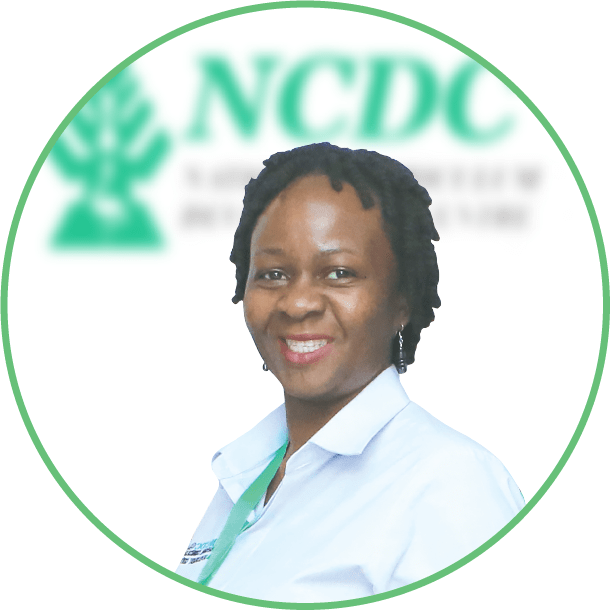
Head, Library & Documentation Services
Literature Bureau
What it is?
Literature Bureau is a platform for nurturing local authorship by promoting free – writing, community based or bottom – up approach to literary production.
Main Purpose
Its main purpose is to;
- Meet increasing demands for reading and instructional materials of all kinds
- Promote local authorship
- Provide publishing opportunities
- Promote creativity and diversity in writing b encouraging authors to write both general and subject specific literature
Activities/Services (Not limited to these)
- Develop guidelines for writing literary works and the evaluation criteria
- Develop guidelines for translation
- Develop guidelines for terminology development
- Provide translation services
- Train prospective writers to participate in the writing activities at different levels
- Evaluating literary works produced by authors
- Updating local language orthographies
- Renewal of District language Board and training them on how to write materials
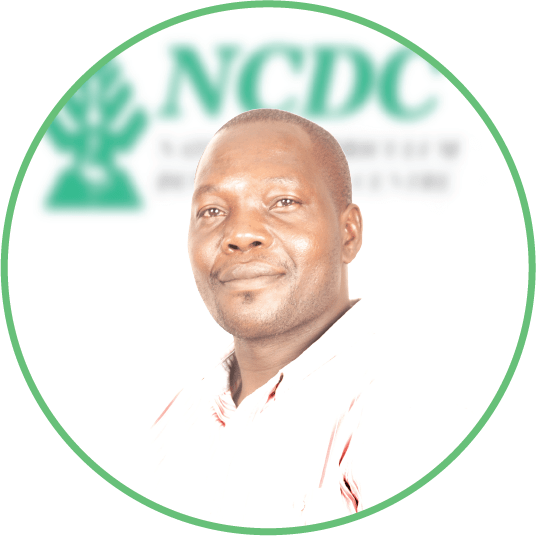
Head, Literature Bureau
ICT & Multimedia
Functions of ICT Department
- Develop and Implement ICT policies, procedures and plans.
- Oversee the implementation of NCDC’s Digital Agenda.
- Provide ICT awareness and guidance on Integration of ICT in all operations of the Centre.
- Source and promote partnerships and collaborations for the advancement of ICT use in Education.
- Maintain the inventory of all curriculum materials developed by the Centre.
- Support all departments with the ICT tools required to undertake their activities.
- Come up with ICT innovations that focus on cost cutting and sustainability.
- Manage and maintain the ICT infrastructure at the Centre.
- Ensure functionality and security of all ICT systems.
- Illustrate, Design and Layout NCDC publications
- Design and maintain NCDC’s communication channels including the website and social media.
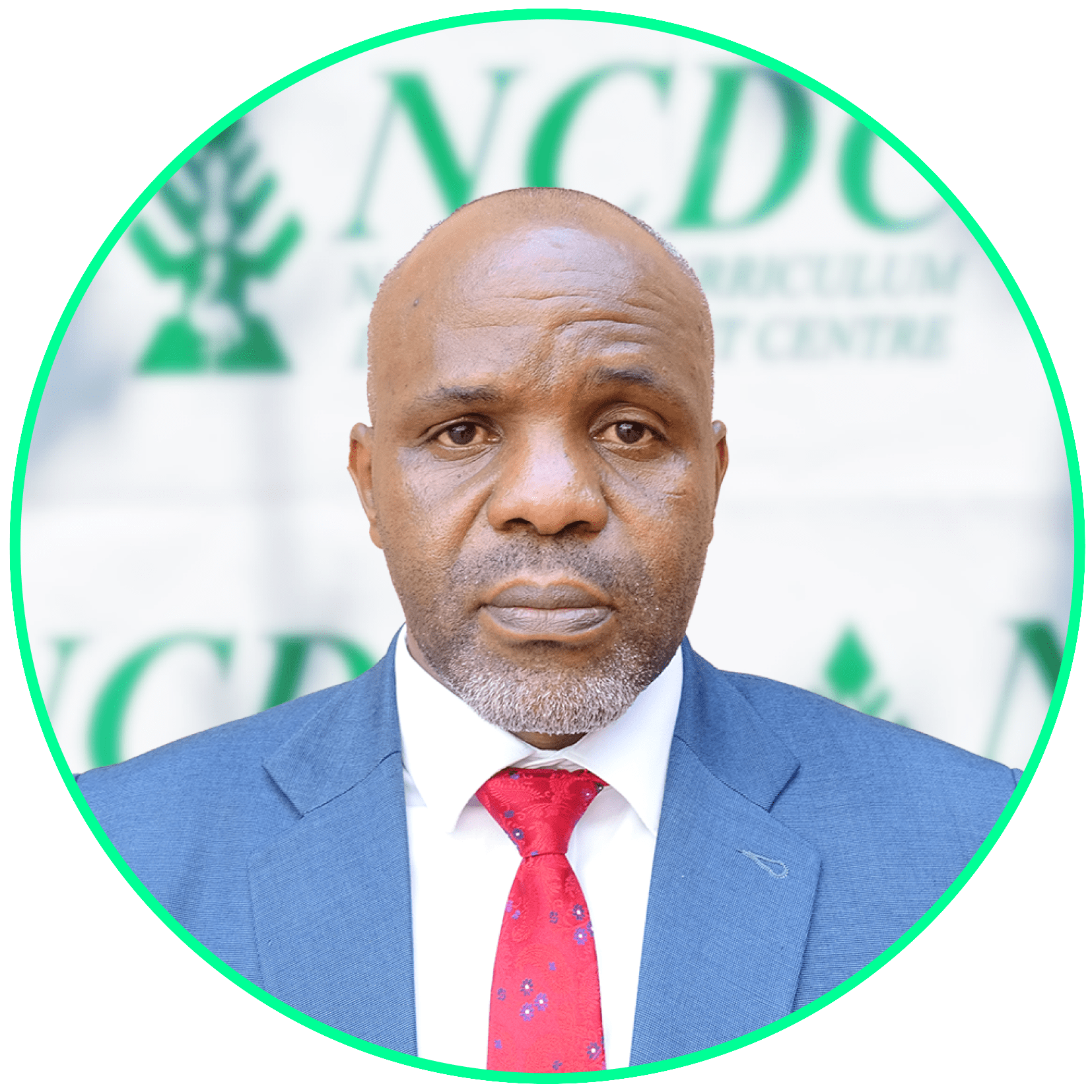
Manager, ICT and Multimedia
Science and Technology, Equipment Production
The Science and Technology Equipment Production Unit (STEPU) was set in 1987 under the National Curriculum Development Centre (NCDC) Kyambogo with financing from the 4th IDA project to establish production of low cost equipment using locally available materials.
The Unit recently concluded the following activities: production of Class, office, library furniture for Solberg S.S in Kabale; class furniture for Greenhill Academy; St Francis nursery and primary school; Blackboard equipment for order and for stock.
The running activities and upcoming activities include; 60 2-seater desks and 120 chairs; Geometrical equipment on order; 15 3-seater desks and 2 pews and 320 pieces of slates.
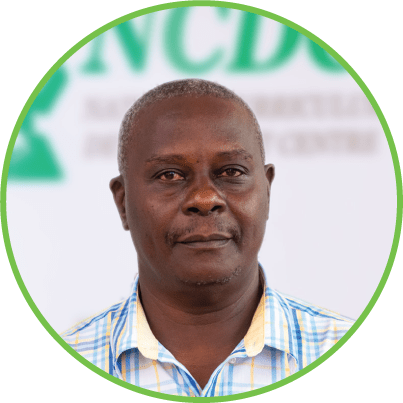
Manager, STEPD
Print & Production
Print and Production
- Ensures efficient and effective administration and management of resources in printing and production processes
- Ensures proper maintenance of production facilities to sustain steady production
- Mobilizes resources and generates income for the Centre
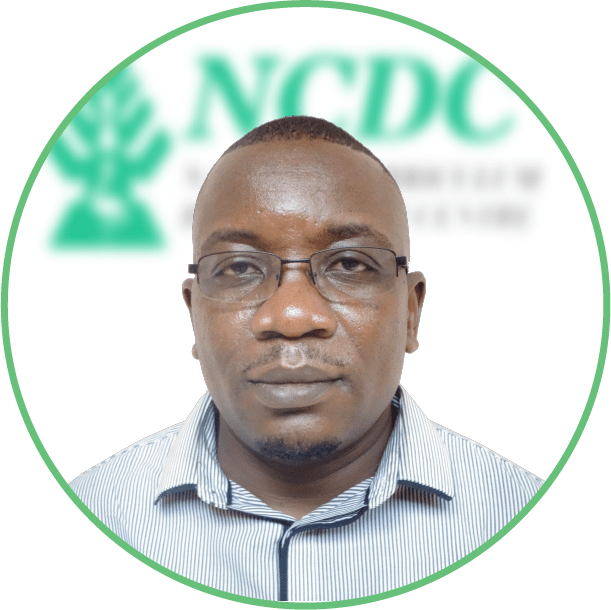
Head, Print & Production

